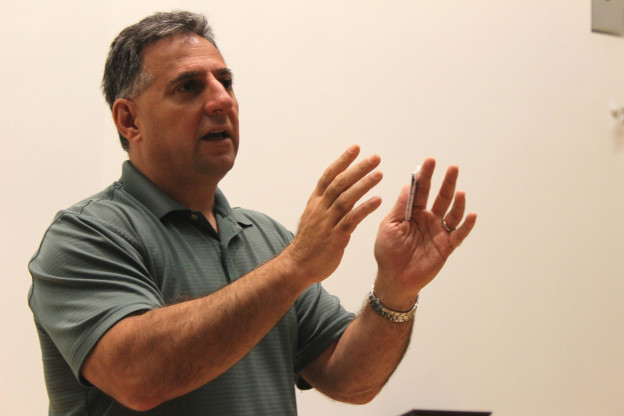Greg Gangi is a professor at UNC, Chapel Hill, and director with the Institute for the Environment. He discussed his motivation behind teaching and how this accompanies his relationship with leaders in the solar industry in North Carolina.
United Solar Initiative: How would you describe your relationship to the solar industry?
Greg Gangi: Well I just got an 8.25 kW system put on my house this week. It’s not hooked up yet, so the inverter hasn’t been installed, but in a few weeks, I’ll be producing my own electricity. So that’s really exciting. And then on another level I’ve known a lot of the entrepreneurs who’ve developed the solar industry in North Carolina. I have a good relationship with them and I’ve been sending them a lot of students via either internships or jobs into their companies. So that’s been a really nice relationship for us because it gives students great opportunities.
USI: Why are you a teacher and how does this align with your support of the renewable sector? Does support of one aid in support of the other?
Gangi: I think there are many things to being a teacher, so I think this aligns more with the idea of being a mentor. Mentoring is very important also, and I think it’s important to help students with career development, so the growth of the renewable industry in North Carolina has been great for our majors.
USI: How does your advocacy of the solar industry come to fruition in the classroom?
Gangi: It’s not so much advocacy, I just point out the obvious like price declines and how solar is reaching grid parity. I use solar also as an example for how technology can scale up, and that’s part of a larger discussion about clean technology and how clean technology can really help bridge the divide between environment and economic development.
And then of course, as part of teaching, again, I’ve been trying to look at different ways to teach so there’s still the standard lecture format, and I’ve struggled to find ways, especially in the intro class that is very broad, and there’s not a lot of problem sets to do a flipped classroom. But I’ve been doing other things like the Clean Tech Summit, which brings the clean technology industry to campus, and so students then can really learn from people from a wide range of industries doing things related to clean tech whether it’s finance or renewable energy developers or smart grid companies. This, I think, is a really good way to show students what’s out there. I can stand up and lecture; it’s another thing to go there and have lunch with somebody who is a CEO of a company. That just provides an entirely different perspective.
Article: Meredith Ratledge
Photo: Jack Molloy









